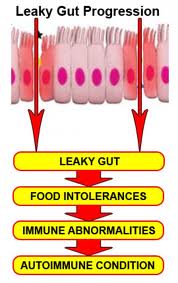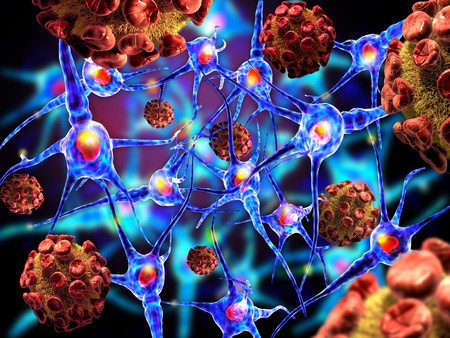Identifying and Avoiding the Triggers of Autoimmune Responses
Lab testing is a critical first step in identifying the extent of systemic inflammation and ruling out many environmental insults which act as triggers and mediators of autoimmunity, such as chronic infection, heavy metal toxicity and decreased capacity to perform liver detoxification.
Food sensitivities can also promote inflammation and potentially drive autoimmune responses.
Identifying and addressing these issues is critical in autoimmune patients to minimize damage and promote restorative function.
Modulating the Autoimmunity and Reducing Tissue Destruction
Functional Medicine addresses diet and lifestyle issues as well as using anti-inflammatory and immune-modulating herbs and nutritional compounds to decrease immune responses to self-tissue.
Identifying the triggers of autoimmunity and modulating the immune response can have powerful long-term positive effects on slowing or stopping tissue destruction and improving quality of life.
Enhancing and Supporting Recovery from Flare-Ups
There are a number of natural compounds that help support a faster recovery by breaking down offending triggers, increasing blood flow to target tissue, and dampening the immune response.
 Addressing Associated Conditions and Promote Autoimmune Responses
Addressing Associated Conditions and Promote Autoimmune Responses
Intestinal Permeability Promotes Autoimmunity
There is growing evidence that increased intestinal permeability plays a pathogenic role in various autoimmune diseases. Increased intestinal permeability and compromised gut integrity appears to precede AI disease and predisposes to immune activation and chronic inflammation. Assessment and proper restoration of the integrity of the intestinal barrier is crucial in managing autoimmune conditions.
Read More on Leaky Gut
The following nutritional interventions are usually used:
- Anti-Inflamatory and Immune-Modulating Compounds
Anti-inflammatory and immune-modulating herbs and nutritional compounds to decrease excessive immune responses can very often be helpful.
- Nutrients to Regenerate the Epithelial Lining
There are various plant compounds, vitamins and minerals that have been shown to have a restorative effect on a damaged intestinal barrier and a proper selection and regime can be very effective.
- Nutrients to Decrease Food Sensitivities
Food sensitivities are very common in people with autoimmune disease. Compounds that have been shown to decrease specific immune responses in the gut related to food sensitivity can be helpful.
There is growing evidence that increased intestinal permeability plays a pathogenic role in various autoimmune diseases. Identifying the existence of intestinal permeability and addressing this condition, leads to a more comprehensive and satisfactory outcome in the autoimmune patient.

 Addressing Associated Conditions and Promote Autoimmune Responses
Addressing Associated Conditions and Promote Autoimmune Responses